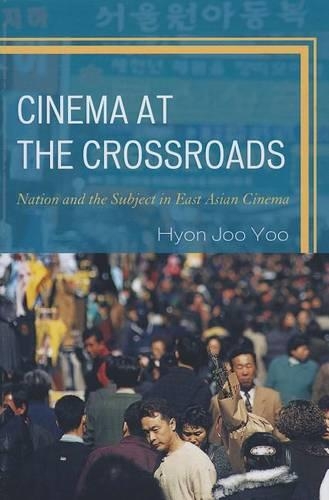
Cinema at the Crossroads: Nation and the Subject in East Asian Cinema
(Paperback)
Publishing Details
Cinema at the Crossroads: Nation and the Subject in East Asian Cinema
By (Author) Hyon Joo Yoo
Bloomsbury Publishing PLC
Lexington Books
22nd October 2013
United States
Classifications
Tertiary Education
Non Fiction
Cultural studies
791.430959
Physical Properties
Paperback
168
Width 154mm, Height 231mm, Spine 13mm
268g
Description
In Cinema at the Crossroads: Nation and the Subject in East Asian Cinema, Hyon Joo Yoo argues that East Asian experiences of colonialism and postcolonialism call for a different conceptualization of postcoloniality, subjectivity, and the nation. Through its analyses of Japanese, Korean, and Taiwanese cinemas, this engaging study of cinema and culture charts the ways in which national cinemas visualize colonial and postcolonial conditions that derive from the history of Japanese colonialism and the post-war alliance between Japan and the United States.
What does it mean to rethink postcolonial studies through East Asian cinema and experience Yoopursues this question by bringing an East Asian postcolonial framework, the notion of film as a manifestation of national culture, and the methodology of psychoanalysis to bear on a failed hegemonic subject. Cinema at the Crossroads is a profound look into how cinema and national culture intertwine with hegemony and power.
Reviews
Proposing that an individual film can be a synecdoche for imperialism, colonialism, and postcolonialismprimarily in North Korea, South Korea, and Japanand that individual filmic characters function as a synecdoche for gender and racial issues, Yoo's book is a hybrid, mixing film analysis with commentary on political and social aspects of East Asia. Using Korean, Taiwanese, and Japanese cinemas and a Lacanian theoretical framework, Yoo (Univ. of Vermont) explores the rules surrounding the 'family state,' or gender rules for individual characters; 'state racism,' which 'involves migrant workers, illegal aliens, and disenfranchised natives'; and Japan's claim to modernity versus the rest of Asia as the 'Other' or the unmodern. The films discussed, among them Chun-ho Bong's Memories of Murder (2003) and Mother (2009) and also Hou Hsiao-hsien's Goodbye, South, Goodbye (1996) and Millennium Mambo (2001), offer instances of the Lacanian real and jouissance, which synecdochely depict how the rules for the family state and state racism break down when the subject's gender identity breaks down, or when, in Hou's films, violence and death reveal the violence of the (post)colonial period. Summing Up: Recommended. * Choice Reviews *
Author Bio
Hyon Joo Yoo is assistant professor of film and television studies at the University of Vermont.
